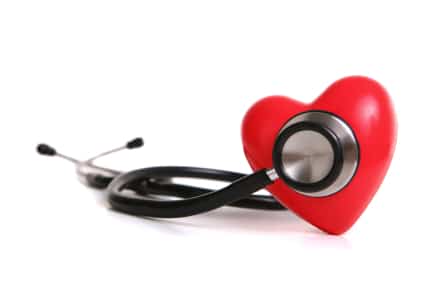
Do You Know Your Cholesterol Ratio?
When you have your lipid levels checked at your doctor’s office the lab report lists your total HDL cholesterol, LDL cholesterol, and cholesterol ratio. You can calculate your cholesterol ratio yourself if you know your total cholesterol and HDL cholesterol level. Simply divide the reading for your total cholesterol by your HDL. For example, if your total cholesterol is 200 and your HDL is 50, your cholesterol ratio is 4 to 1. That’s a good ratio since the American Heart Association recommends keeping your cholesterol ratio below 5 to 1.
A higher HDL level lowers your cholesterol ratio, and a higher HDL is a positive in terms of heart disease risk. This is because HDL cholesterol helps to “clean up” the walls of blood vessels by removing excess cholesterol and carrying it back to the liver where it can be broken down. That means there’s less cholesterol hanging around to narrow and block your arteries and lead to a heart attack or stroke. HDL levels of between 40 and 60 are acceptable, but above 60 are optimal for heart health.
How to Improve Your Cholesterol Ratio
You can improve your ratio by lowering your total cholesterol or raising your HDL level. To do this you want to lower your LDL level, the bad form of cholesterol that increases the risk of heart disease. You can do it to some degree by losing excess weight, adding more fiber to your diet and by replacing saturated fat from animal sources with monounsaturated ones from nuts, seeds, and olive oil and omega-3 fats from fatty fish. Eliminating most processed foods helps many people reduce their cholesterol level. Some people who don’t respond to dietary changes need medication to get their LDL cholesterol down to a desirable level. In people who don’t have heart disease, an LDL cholesterol level of 130 or lower is acceptable.
The other way to improve your cholesterol ratio is to raise your HDL level. One of the best ways to do this is through exercise. Aerobic exercise is most effective and how long you work out matters. To get the benefits of a higher HDL, you need to exercise for a minimum of 30 minutes most days of the week. In terms of heart health, high-intensity exercise offers more benefits than a leisurely walk. Drinking one to two glasses of alcohol a day, preferably red wine because of its heart benefits, also helps to raise HDL cholesterol levels. If you smoke, kick the habit. It lowers HDL levels.
The Bottom Line?
Your total cholesterol level doesn’t tell the whole story. You need to know not only your total cholesterol levels but your HDL level, LDL level, and your cholesterol ratio as well. Ask your doctor about these numbers.
References:
Arch Intern Med 2007; 167:999-1008.
Mayo Clinic. “How Important is Cholesterol Ratio?”
WebMD. “HDL Cholesterol: The Good Cholesterol”
Related Articles By Cathe:
Can Exercise Lower Your Cholesterol Level?
Exercise and HDL: How Much Exercise Do You Need to Do to Raise Your Levels?
What Impact Does Exercise Have on Blood Lipids?
5 Surprising Facts about Heart Disease You Probably Don’t Know
5 Ways High-Intensity Interval Training (HiiT) Improves the Health of Your Heart
Heart Disease Runs in the Family: How Worried Should You Be?
Exercise and Obesity: Does Working Out Reduce the Negative Health Effects of Obesity?
Beyond Sodium: is Sugar What’s Raising Your Blood Pressure?
4 Ways Your Heart Adapts to Aerobic Exercise
Yoga and Aerobic Exercise Are Synergistic for Heart Health

